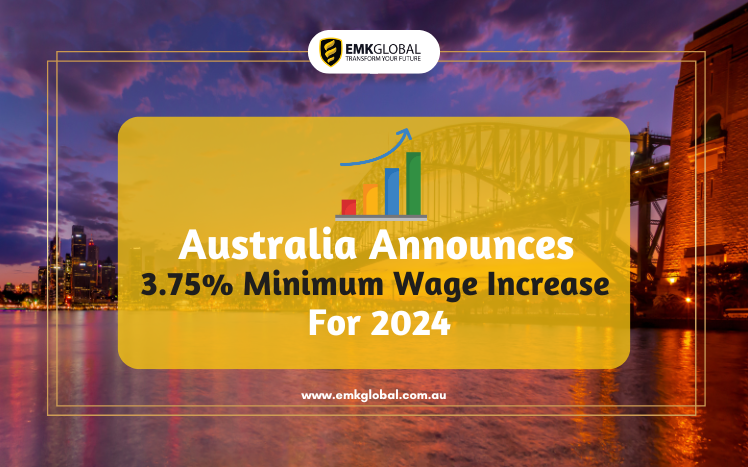Key Highlights
- New Minimum Wage: $24.10 per hour or $913.91 per week
- Implementation Date: July 1, 2024
- Affected Workforce: 2.6 million workers (20.7% of the labor force)
Overview of the Minimum Wage Increase
The Fair Work Commission has officially announced a 3.75% increase in the minimum wage for Australian workers. Effective from July 1, 2024, this adjustment will see the minimum wage rise to $24.10 per hour, translating to $913.91 per week based on a standard 38-hour workweek. This change will impact approximately 2.6 million workers, representing 20.7% of the nation’s labor force.
Reasoning Behind the Increase
The decision to raise the minimum wage was influenced by various factors, including the need to maintain living standards, address the rising cost of living, and promote workforce participation. Despite the positive reception among workers, the increase has sparked debate among small businesses and notable figures.
Commission President’s Statement
Adam Hatcher, the president of the Fair Work Commission, expressed reservations about the timing and magnitude of the wage increase. He stated:
“It is not appropriate at this time to increase award wages by any amount significantly above the inflation rate, principally because labor productivity is no higher than it was four years ago and productivity growth has only recently returned to positive territory.”
Economic Context
The recent federal budget anticipates consumer price inflation peaking at 3.5% by the end of the current fiscal year, with a projected decline to 2.75% by June 2025. The Reserve Bank’s latest forecasts predict annual inflation rates of 3.8% for the current quarter and 3.2% for the same period next year. The Fair Work Commission has also raised concerns about the potential negative impact on industries that predominantly employ minimum-wage workers.
Response from Small Businesses
The announcement has elicited mixed reactions, particularly from small business owners. Luke Achterstraat, the chief executive of the Council of Small Business Organizations Australia (COSBOA), articulated the challenges faced by small businesses in adapting to the wage increase. He remarked:
“It’s an extremely tough operating environment; the levy is really breaking for small business, energy, rent, insurance, [and] borrowing costs, and as the [Fair Work] commission said, productivity has been flatlining for a number of years now.”
Federal Government’s Perspective
The federal government has welcomed the wage increase, emphasizing its alignment with efforts to mitigate cost-of-living pressures. Treasurer Jim Chalmers highlighted the significance of this move during Question Time, stating:
“This is the real wage increase that low-paid workers need and deserve. This is a win for 2.6 million workers and their loved ones.”
Conclusion
The decision to increase Australia’s minimum wage by 3.75% represents a crucial step towards addressing the escalating cost of living. While the adjustment promises enhanced financial stability for employees, small businesses may face challenges in managing the increased labor costs. However, with inflation expected to stabilize in the coming year, this wage hike is anticipated to foster a more equitable and resilient economy for all Australians.


